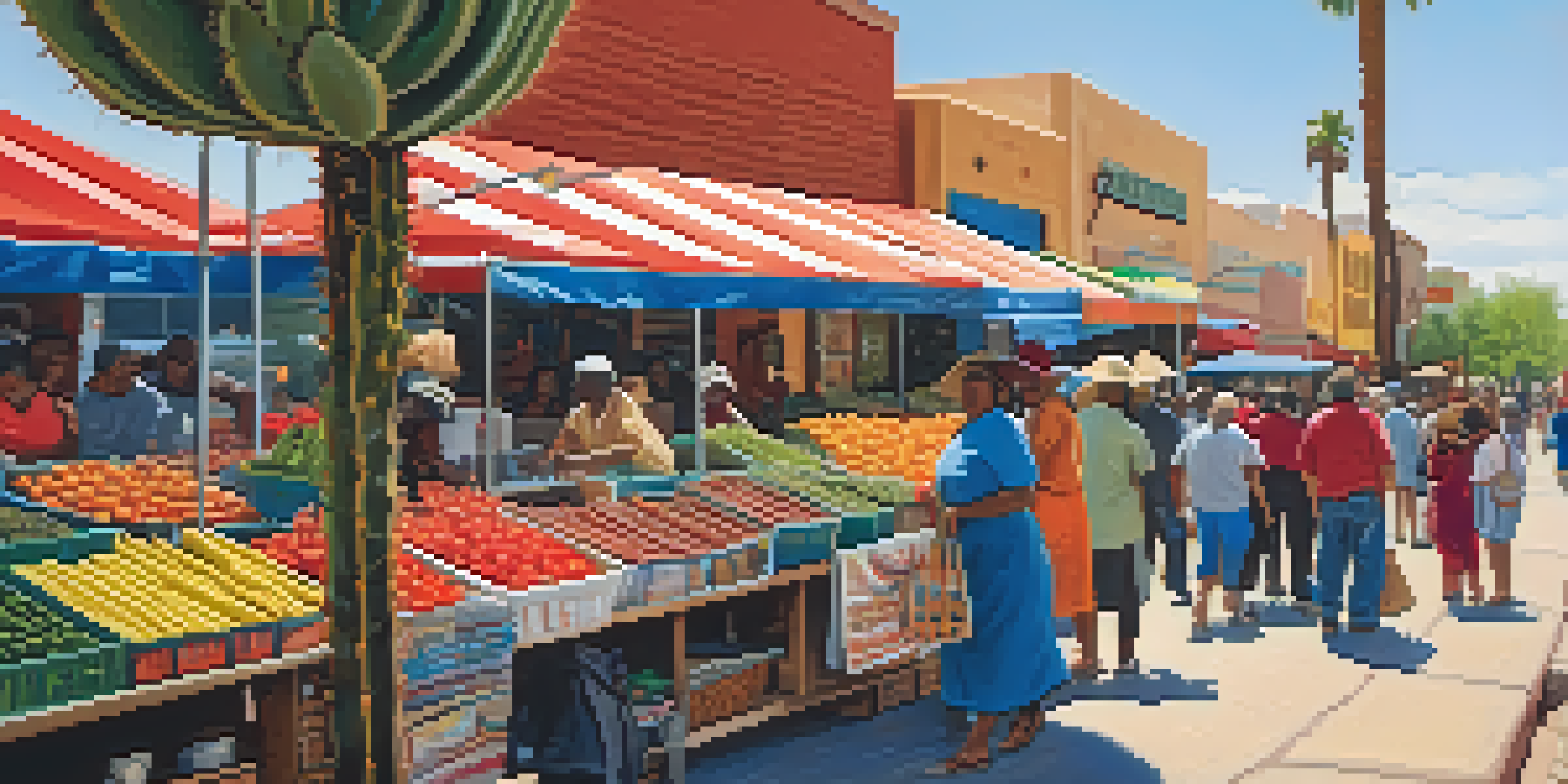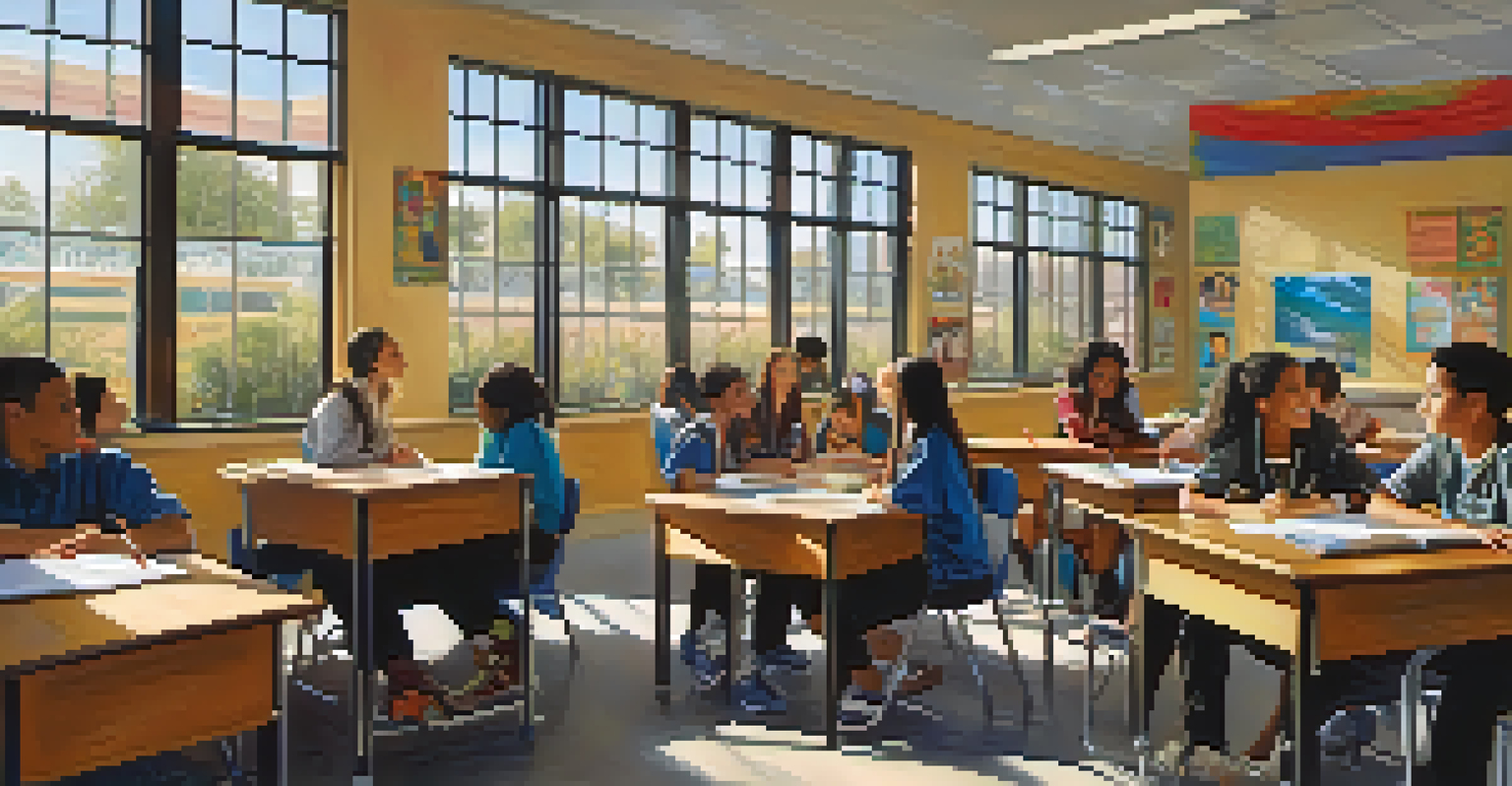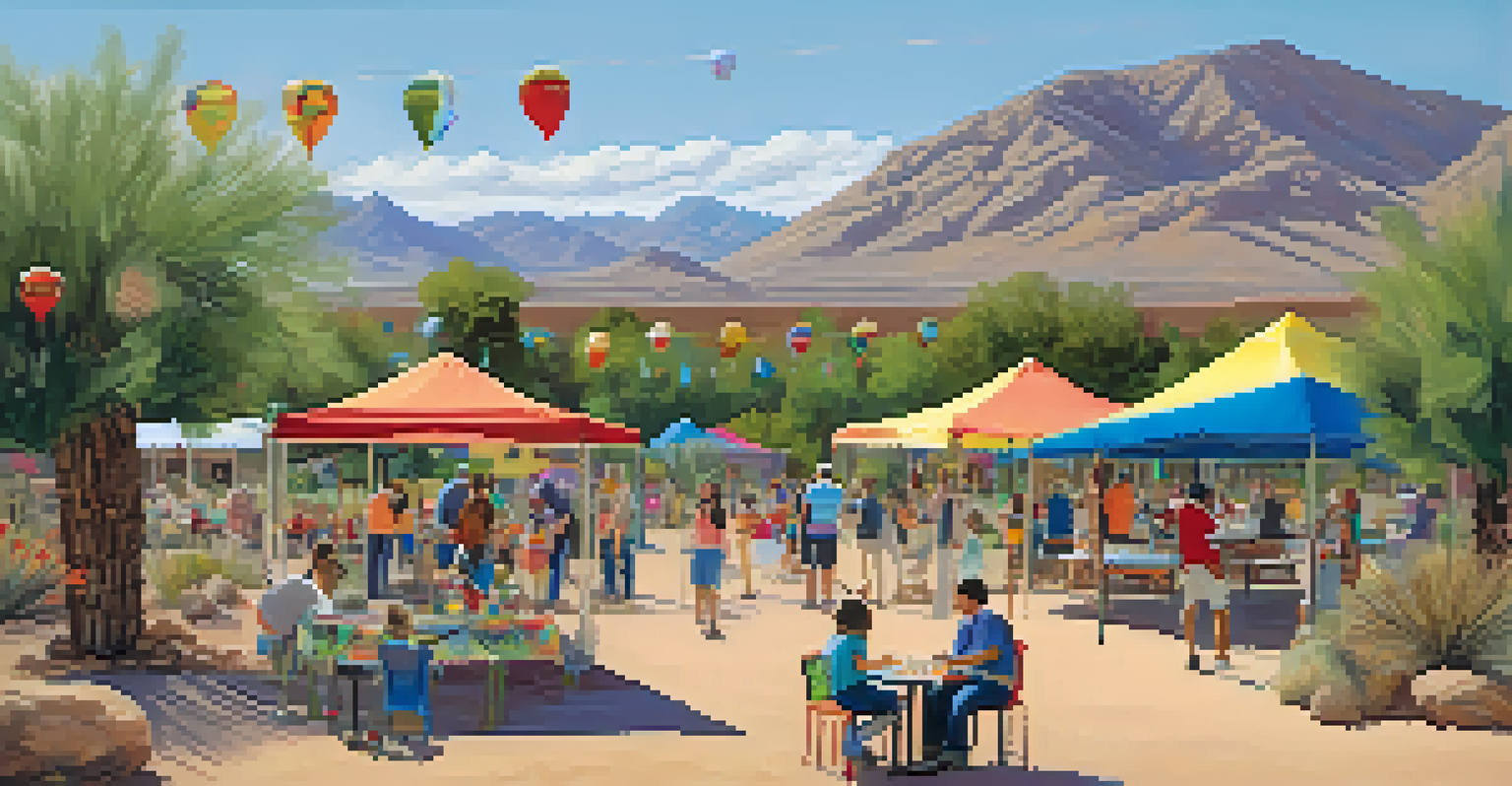Border Policies and Their Effects on Tucson Communities

Understanding Border Policies and Their Origins
Border policies in the United States have a long and complex history, shaped by various socio-political factors. They often stem from the desire to regulate immigration and maintain national security. In Tucson, a city located near the Mexico border, these policies directly influence everyday life and community dynamics.
The border is not just a line on a map; it’s a complex intersection of cultures, economies, and lives that are deeply interconnected.
Historically, policies have fluctuated between openness and restriction, reflecting the changing attitudes towards immigration. For Tucson, this means oscillating between welcoming migrants and facing challenges related to increased enforcement. These shifts can create uncertainty for families and individuals who live in the shadow of the border.
Understanding these policies is crucial because they not only affect those crossing the border but also impact the local population's economic and social fabric. The implications of these regulations can be felt in schools, workplaces, and neighborhoods, shaping the essence of Tucson itself.
Economic Impacts on Tucson Communities
Tucson's economy is closely linked to its border with Mexico, with many local businesses relying on cross-border trade and tourism. Changes in border policies often ripple through the local economy, affecting everything from job availability to the prices of goods. For instance, stricter enforcement can lead to delays in customs, impacting businesses that depend on timely deliveries.

Moreover, the presence of migrant workers plays a significant role in sectors like agriculture and construction. When border policies tighten, it can lead to labor shortages, ultimately affecting productivity and economic growth. This situation creates a delicate balance where businesses must adapt to these changing regulations while trying to meet their operational needs.
Border Policies Shape Local Life
Tucson's border policies influence community dynamics, economic stability, and social cohesion.
The economic landscape of Tucson illustrates the interconnectedness of border policies and local livelihoods. Thus, understanding these impacts is essential for both policymakers and community members as they navigate the complexities of a border town economy.
Social Dynamics and Community Cohesion
Border policies also influence the social dynamics within Tucson communities, often leading to divisions among residents. Some community members may feel threatened by an influx of migrants, while others embrace the cultural diversity that comes with it. This tension can manifest in various ways, from community events to local politics.
Diversity is the one true thing we all have in common. Celebrate it every day.
For many, the arrival of new residents enriches the community, bringing new ideas, traditions, and perspectives. However, fear and misunderstanding can create barriers, leading to social fragmentation. Tucson, a city with a rich history of cultural blending, now faces the challenge of fostering unity amidst these contrasting views.
Promoting dialogue and understanding among different groups is essential for community cohesion. Local organizations and leaders play a vital role in bridging these divides, helping residents appreciate the contributions of all community members, regardless of their immigration status.
Education and Its Role in Tucson's Communities
Education is another area deeply affected by border policies, particularly in how schools address the needs of diverse student populations. In Tucson, many students come from migrant families, and their educational experiences can be shaped by the legal and social climate surrounding immigration. Schools must navigate these complexities while ensuring that all students receive a quality education.
Policies that restrict access to education for undocumented children can hinder their opportunities and perpetuate cycles of poverty. Conversely, inclusive educational practices can empower these students, helping them to thrive academically and socially. This dynamic illustrates how education can serve as a vital tool for integration and community building.
Economic Ties Depend on Migration
The local economy relies heavily on cross-border trade and migrant labor, making policy changes impactful.
Furthermore, schools in Tucson often serve as community hubs, where families gather, share resources, and support one another. By fostering an inclusive environment, educators can help bridge the gap between different cultures and create a sense of belonging for all students.
Public Safety and Community Relations
The intersection of border policies and public safety is a critical concern for Tucson residents. Some community members may perceive a heightened police presence as a means of protection, while others may view it as a source of intimidation, particularly among immigrant populations. This duality can strain relationships between law enforcement and communities.
Efforts to promote community policing and build trust are essential in fostering positive relationships between law enforcement and residents. Programs that encourage cooperation can help bridge the divide, ensuring that everyone feels safe and respected. This is especially important in a border city like Tucson, where diverse communities coexist.
By addressing concerns and encouraging dialogue, Tucson can work towards creating a shared vision of safety that respects the dignity of all residents. Open communication between community members and law enforcement can pave the way for a more harmonious living environment.
Health Implications for Border Communities
Border policies can have significant health implications for Tucson communities, particularly for migrant populations who may face barriers to accessing healthcare. Fear of deportation or discrimination can prevent individuals from seeking necessary medical attention, leading to poorer health outcomes. This situation emphasizes the importance of understanding healthcare access in relation to border policies.
Additionally, public health initiatives must consider the unique challenges faced by border communities, including the prevalence of communicable diseases and access to preventive care. Local health services play a critical role in addressing these issues, often striving to provide care in a culturally sensitive manner.
Cultural Identity Reflects Diversity
Tucson's rich cultural identity is continually shaped by its border location, blending influences from both sides.
By prioritizing health equity, Tucson can work towards creating a healthier community for all its residents. Collaborative efforts between healthcare providers, community organizations, and policymakers can help ensure that everyone, regardless of their immigration status, receives the care they need.
Cultural Identity and Transformation
The cultural identity of Tucson is inextricably linked to its border location, with a rich tapestry of influences from both sides. Border policies can impact this cultural landscape, sometimes creating tension but also offering opportunities for growth and transformation. Residents often find themselves at the crossroads of different cultures, which can be both enriching and challenging.
As communities navigate the effects of these policies, they also have the chance to redefine their cultural identity. Festivals, art, and shared traditions often emerge as expressions of resilience and unity among diverse groups. This cultural exchange can foster understanding and appreciation for the unique heritage present in Tucson.

Ultimately, the cultural evolution of Tucson reflects the ongoing dialogue between tradition and change. As residents embrace their multifaceted identities, they contribute to a vibrant, dynamic community that celebrates diversity while addressing the realities of border policies.
Future Considerations for Tucson Communities
Looking ahead, the future of Tucson communities will be shaped by ongoing discussions around border policies and their implications. As migration patterns continue to evolve, it is essential for residents and policymakers to remain proactive in addressing the challenges and opportunities these changes present. Engaging in open dialogue can lead to innovative solutions that benefit everyone.
Collaboration among community leaders, residents, and local organizations will be crucial in fostering a thriving, inclusive environment. By prioritizing community engagement and collective action, Tucson can work towards a future that embraces diversity while addressing the complexities of border policies.
Ultimately, the resilience of Tucson's communities will depend on their ability to adapt and respond to the evolving landscape of border policies. By staying informed and committed to collaboration, residents can help shape a brighter future for all.